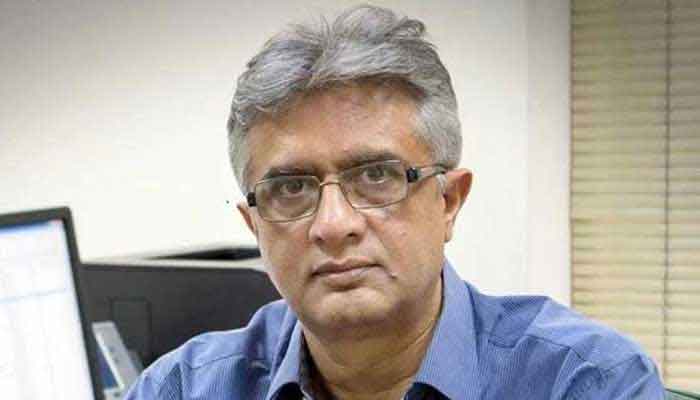Pakistan to vaccinate 70mn people by end of 2021: SAPM Dr Faisal Sultan
"Pakistan is vaccinating nearly 150,000 people daily while the target is to reach 300,000 vaccinations daily," says Faisal Sultan
May 03, 2021

ISLAMABAD: SAPM on Health Dr Faisal Sultan Monday announced on Monday that the government has planned to vaccinate 70 million people by the end of 2021 and efforts are underway to acquire coronavirus vaccines so that it is able to do so.
In a media briefing, Dr Faisal Sultan said due to the agreement on the transfer of technology, the National Institute of Health (NIH) will be able to produce three million doses per month which will significantly reduce the country’s dependence on other countries.
He said China was a strong partner and had gone out of its way in keeping up a supply chain and transferring technology to Pakistan.
The SAPM said the government had planned to vaccinate 70 million people by the end of this year.
“The population of Pakistan which was currently eligible for vaccination was 100 million out of 220 million as the vaccines had only been approved for those above 18.”
He added that for the first half of the year, January to June 2021, the government had received and expected to receive 19.82 million doses. He added 91% of these doses were purchased, which clearly shows the country is not dependent on donations.
‘300,000 vaccinations daily target’
Dr Faisal said, “In totality, we have signed deals for over 30 million doses so the fact that we have already secured 30 million doses and will continue to procure more for the rest of the year should be very reassuring.”
He said Pakistan was now vaccinating nearly 150,000 people daily while the target was to reach 300,000.
“The government has started vaccination for 40 years and above and in this regard, the registration was opened last week.”
Read more: 90% of Punjab's cases in last 3 months belonged to UK virus variant: sources
Dr Faisal said, “Our procurement is a result of proactive efforts. The government initiated the conversation with vaccine manufacturers and GAVI in July 2020 which is well before any vaccine had been fully developed and approved.”
Short supply
While explaining the government’s efforts to acquire vaccines, he said the Economic Coordination Committee approved $150 million dollars for vaccine procurement on November 20, 2020, while the Cabinet confirmed this on December 1, 2020.
He said it was important to note that vaccines did not get approved for use until mid or late December as Pfizer approved on December 11, 2020, AstraZeneca approved on December 30, 2020, while Sinopharm was also in late-stage Phase III trials in December.
He said that manufacturers like Astra Zeneca and Moderna have been unable to meet demand while some of the world’s largest vaccine manufacturing countries have imposed embargos on exporting vaccines until their local demand is met.
Read more: NCOC bans processions on Youm-e-Ali
The prime minister's aide said the government is proud of its accomplishments especially considering the serious global supply issue when some of the richest countries like Australia and Canada had to slow down or halt their vaccine roll-out.
Dr Sultan said it is erroneous to compare Pakistan with countries like the US and India who are self-sufficient in vaccine production already.
“We are certainly moving in that direction now but so far Pakistan did not have the capacity for vaccine production.”
Pakistan’s vaccination plan
He made it clear that Pakistan’s vaccine roll-out began very soon after India’s as the first vaccine dose was administered in India on the 16th of January while the first vaccine dose was administered in Pakistan on the 2nd of February.
He said that some have drawn comparisons to countries in the region with smaller economies like Bhutan which has vaccinated over 60% of its population. He added Bhutan has a population of almost 750,000 which means they have vaccinated around 500,000 people.
Dr Sultan said,” Pakistan has a population of 220 million and we have vaccinated over 2.5 million people. So Pakistan has vaccinated five times as many people as Bhutan actually and, in fact, three times the whole population of Bhutan.”
The premier's aide said the government will continue to take additional precautions of limiting public space and enforcing SOPs to slow down the spread of disease.
He expressed the hope that the media will continue to support the government wholeheartedly in the fight against COVID-19.











